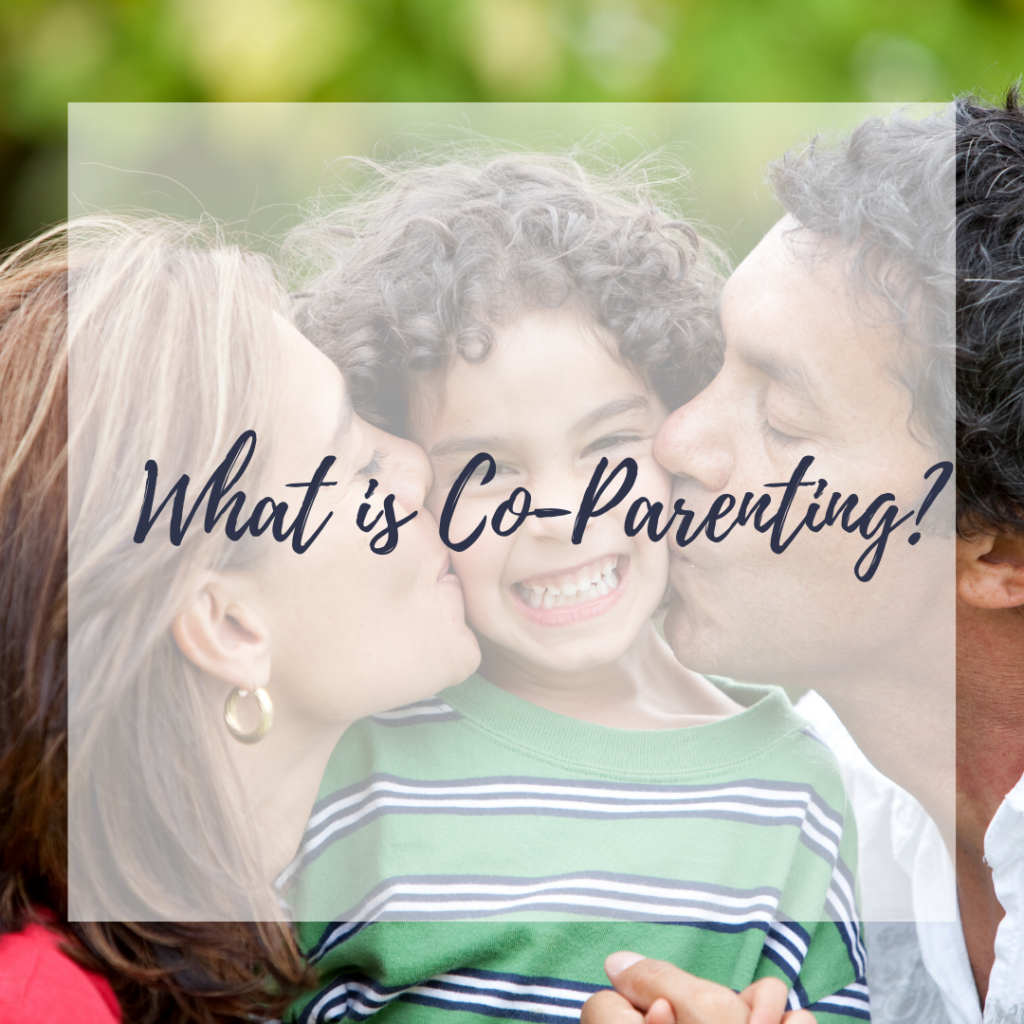
In the most basic of terms, co-parenting after parental separation is moving from being a spouse/partner to developing a more “business like” relationship with one another to parent effectively but separately. It involves parents putting aside their differences to develop a parenting plan that best fosters their children’s development and meets the needs of the children on an ongoing basis. Co-parenting requires that parents have an ongoing relationship with one another that can vary from business like to genuine friendship, depending what parents are capable of emotionally at any given time. The focus of the co-parenting is always on the needs and development of the children.
Co-parenting is a basic goal for all separating families; however, not all families are able to manage this well, particularly in the beginning when emotions are running high and everyone is anxious about the changes. And it’s not appropriate for every situation, such as when there has been violence between the parents. Co-parenting requires parents to be cooperative and reasonably amicable with the other parent, which allows the child or children to maintain a healthy and positive relationship with each parent. It’s not always easy, but it is doable.
Co-parenting is often confused with joint custody and, while there are many situations where parents do share custody, co-parenting speaks more to the parents willingness to work together, rather than any current parenting arrangements or court orders. Even parents who live far apart, where children don’t have regular in person access to each parent, can have a co-parenting relationship that works for the children.
Co-parenting requires an ongoing willingness to communicate in a positive, or at least a neutral, manner with the other parent. It also requires a “child focussed lens” and a willingness to put the children first when issues arise. Because issues WILL arise, even if things are going smoothly now. That’s the nature of having kids.
A successful co-parenting relationship fosters children’s affinity and connection to each parent, and allows for parents to address any issues in a reasonable and child focussed manner as they arise. The focus of co-parenting is not to continue to the conflict in the parental relationship, but to turn their attention to developing and implementing a parenting plan that makes sense for their children. Co-parenting works best when parents have common values in areas of child rearing such as routines, structure, and discipline. Parents who were largely able to agree on their parenting methods and values prior to their separation, are likely to do better at co-parenting because they’re working from a similar value base and have worked cooperatively in the past.
Parents who can successfully co-parent after separation are often able to mitigate the damage that comes from divorce. Research suggests that children do better in separate homes where separated parents are cooperative and child focused, than those who remain in a two parent home where the parents are in conflict much of the time. More importantly children who have been co-parented well learn a lot about healthy conflict resolution, feel stable in both homes post separation, and are able to develop a healthy relationship with both parents.
Most parents want what’s best for their children, but sometimes they get stuck managing their own feelings and anxiety about the changes in their family. If you’re feeling like things aren’t working or you’re stuck in your own emotions, talking to someone like a therapist can help sort through your feelings and keep the children out of the conflict. It helps for both parents to create basic ground rules that each of you can follow, such as not talking negatively about the other parent to the children, and agreeing to ensure that communication is timely and respectful, as well as child focussed.
Break ups and divorce can be traumatic for children, many of whom carry painful memories and scars that impact them later in life. Parents who can deal with their own personal emotions away from the children, and focus on creating a cooperative parenting plan post separation are creating the best possible chance for their children to heal and grow after their parents separate. And while it’s not always easy, it’s always worth it.
Want some help in this area? Give us a call at 506-346-1313 or email us at theontariocoparentingcentre@gmail.com
